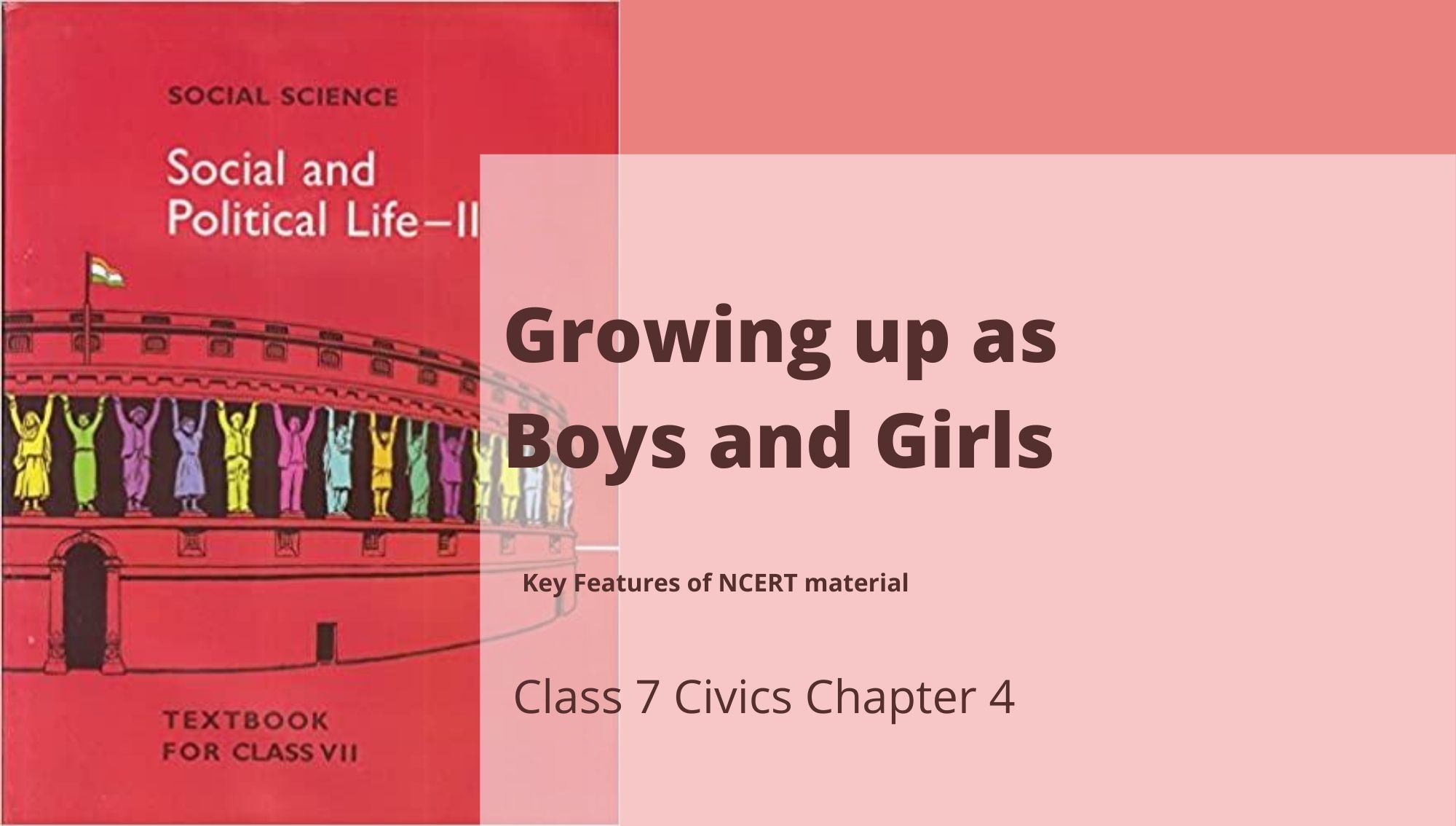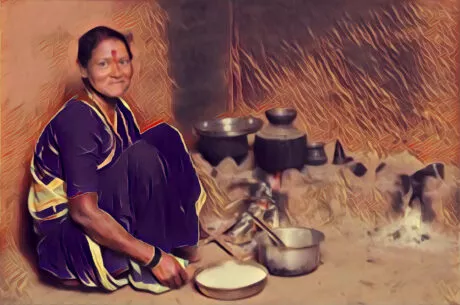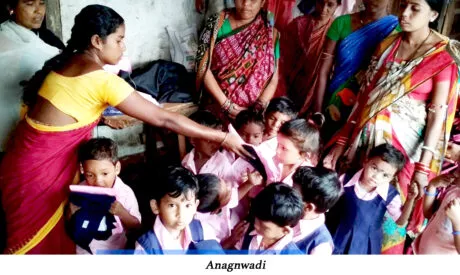Growing up as Boys and Girls: Class 7 Civics NCERT Chapter 4

Key Features of NCERT Material for Class 7 Civics Chapter 4 – Growing up as Boys and Girls
In the previous chapter 3, you studied the working of a legislative assembly and how MLAs and chief ministers of different states are elected. Being a kid or a young lady is a significant piece of one’s personality. In this chapter: Growing up as Boys and Girls, you will study how the general public we experience childhood in encourages us what sort of conduct is satisfactory for young ladies and young men, what young men and young ladies can or can’t do. We regularly grow up imagining that these things are actually the equivalent all over the place.
In any case, do all social orders take a gander at young men and young ladies similarly? You will find a solution to this inquiry in this chapter. You likewise realize how the various jobs allocated to young men and young ladies set them up for their future jobs as people. We will likewise figure out how imbalances among people develop in the region of work.
Quick Revision notes
Sexual orientation is a social development through which the social and social jobs of guys and females are characterized. The majority of the social orders esteem people in an unexpected way. The job ladies play and the work they do are typically esteemed not exactly the jobs men play and the work they do. This clears the way that people don’t have a similar status. Sexual orientation equity is a significant issue to be featured.
Samoan Islands
The Samoan islands are one of the enormous gatherings of little islands in the southern piece of the Pacific Ocean. Till the 1920s, youngsters on this island didn’t go to class. At the point when the children began strolling on their own, they were left under the consideration of their more seasoned siblings and sisters. Youngsters as old as five years cared for their more youthful kin.
Subsequent to accomplishing nine years old, young men joined the more established young men for open-air exercises like fishing and planting coconuts. In any case, young ladies kept caring for the more youthful ones. At the point when young ladies became youngsters, i.e., 14 years old, they were permitted more opportunity as they could then go for fishing and ranch exercises or help their moms in cooking, and so on.
Experiencing childhood in Samoa during the 1920s
During the 1920s, as indicated by research writes about Samoan culture, kids didn’t go to class. At a little age, they learned things, for example, how to deal with youngsters or accomplish family work from more established kids and from grown-ups. The two young men and young ladies used to accomplish family unit work.
Madhya Pradesh
In Madhya Pradesh, India, young men, and young ladies had an alternate viewpoint. For young men, the school was open while the one for young ladies was shut. People accomplish equivalent work, however, it isn’t esteemed similarly.
Esteeming Housework
Numerous ladies work in workplaces and many accomplish just family work. Esteeming housework is a significant component that should be spread in the public arena. On the off chance that we take a gander at the lives of household labourers, they are engaged with exercises like clearing, cleaning, cooking, washing garments and dishes, or caring for kids. The vast majority of these are ladies. Various housework really includes a wide range of undertakings. The work requires difficult and truly requesting circumstances.

Women’s Work and Equality
Young men are given toys like vehicles and weapons to play with while young ladies are seen playing with dolls. These toys become a method of mentioning to kids what they will have various prospects when they become people. Most social orders esteem people in an unexpected way. The jobs ladies play and the work they do are typically esteemed not exactly the jobs men play and the work they do. This clears the way that people don’t have a similar status.
On the off chance that a lady is a housewife, people say that she doesn’t work. Be that as it may, actually it is consistently the lady who bears the primary obligation regarding housework and providing care undertakings like caring for the family. As she doesn’t win cash by carrying out these responsibilities, society doesn’t acknowledge her work.
The term housework includes a wide range of assignments that require overwhelming physical work. Both in the country and urban zones, ladies and young ladies convey overwhelming headloads of kindling. Housework additionally includes washing garments, cleaning, clearing and cooking nourishments, and so on for the family. Every one of these works is extremely intense, still, ladies do them consistently. They don’t whine or show any torment all over.
Crafted by ladies is tedious as well. They don’t possess a lot of energy for relaxation. Numerous ladies these days work both inside and outside the home. This is frequently alluded to as the twofold weight. Ladies bear this twofold weight skillfully and productively. Correspondence is a significant guideline of our constitution which says that being male or female ought not to turn into an explanation behind segregation. In any case, what we find as a general rule is that imbalance despite everything exists between both the genders. The administration is, thusly, especially quick to take some positive measures to improve the circumstance.
Anganwadis
Equity is a significant rule of our constitution which says that being male or female ought not to turn into a purpose behind segregation. While the constitution doesn’t segregate among male and female, truly, separation despite everything continues. The government has presented measures like Anganwadis or Child Care Centers to improve the status of ladies in the public eye.

The administration has additionally begun creche offices to assist ladies with taking up work outside the home. We discover differentiations among young men and young ladies in our social orders. This starts at a youthful age. Young men are frequently educated to be intense and genuine while young ladies are instructed to be delicate and gentle.
The legislature has set up Anganwadis or Child-care Centers in a few towns in the nation. The legislature has additionally begun creche offices to assist ladies with taking up work outside the home.
Providing care:
Looking after the family with incredible earnestness.
Cheapen:
When we don’t give due acknowledgement for work, it implies we debase it.
Twofold weight:
There are a few ladies who work both inside and outside the home. This is a twofold weight.
Personality:
It is a feeling of familiarity with what one’s identity is. For instance, an individual can be a sibling, a pilot, a specialist, and so on.
Genuinely requesting:
It alludes to the family assignments which are extreme and request extraordinary physical quality.
Tedious:
It alludes to the different family assignments which take a lot of time.
Arduous:
Very extreme and troublesome.

